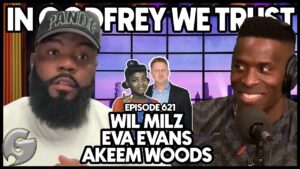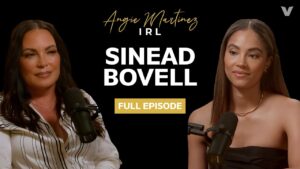BLP Kosher isn’t new to the game, he’s just new to the spotlight. In a recent sit-down with The Bootleg Kev Podcast, the rising Florida artist gave fans a deeper look into the inspirations, challenges, and personal victories shaping his unconventional hip-hop journey.
The conversation kicked off with high praise for Kosher’s lyrical style, something diehard fans have long championed, even if mainstream outlets haven’t caught on. He acknowledged the disparity, calmly noting that while he’s still building visibility, he’s already earned nods from some of hip-hop’s most respected figures.
A standout moment? His connection with DJ Premier. That relationship traces back to an offhand shoutout to Gang Starr during a Complex interview. Not long after, Premier reached out directly, a co-sign that Kosher still carries with weight. Their bond, he explained, was born not just out of mutual respect for hip-hop’s technical artistry, but from a shared commitment to honoring those they’ve lost.
Premier saw Kosher as someone preserving memory, just like he does with Guru.
BLP Kosher credits a video game soundtrack as his accidental gateway into hip-hop. As a kid playing Dave Mirra Freestyle BMX, one song stopped him cold: Gang Starr’s “Moment of Truth.” That single track cracked open the door to lyricism, production, and storytelling, all elements that would later define his sound.
Growing up in Florida during the explosive SoundCloud era gave him front-row access to genre-bending pioneers like XXXTentacion, Kodak Black, and Ski Mask the Slump God. While that scene was formative, he never limited his scope. The Joey Bada$$/X connection helped expand his palette toward more traditional, East Coast-influenced rap. That blend of new-age chaos and classic boom bap now defines his lane.
He’s aware of the polarized reception he gets online. Platforms like Reddit have carved out a loyal cult fanbase for him, while certain corners of the internet remain quick to dismiss. But Kosher isn’t rattled. He frames the criticism as inevitable, part of the tradeoff that comes with being visible.
In his words, rap is a long game. And the noise doesn’t move him.
One of his sharpest critiques centered on short-form culture. Kosher voiced frustration with how today’s music conversations are chopped into bite-sized clips, often devoid of context. He noted that interviews are mined for one-liners, videos are skimmed for viral moments, and nuance takes a back seat to engagement metrics.
It’s a world where 10-second soundbites matter more than three-minute verses, and that, he argues, dilutes the art.
Though the digital landscape has minimized the cultural weight of music videos, Kosher hasn’t given up on them. He sees visuals as extensions of the music, critical to storytelling, and part of an artist’s creative portfolio, even if the views don’t translate to massive exposure.
In his mind, dropping a music video isn’t about chasing virality. It’s about planting a flag.
BLP Kosher continues to operate in a strange middle ground, adored by underground purists, rarely embraced by the mainstream, but constantly evolving. He’s playing the long game, building a discography that aims to outlast trends and stand as proof that substance can still matter.






